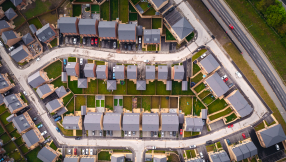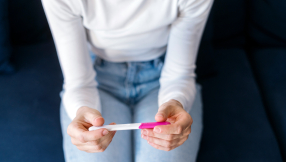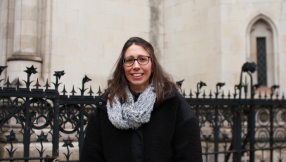
With the final restrictions now being lifted, many are rejoicing.
Some are fed up with the large group of clinically extremely vulnerable people 'bleating on about' these changes that will make life even more dangerous for them.
The term 'living with Covid' has a totally different meaning for the 3.7 million people in Britain who are 'clinically extremely vulnerable' and those who are classed as 'vulnerable'.
For some, in spite of three vaccines, even the Omicron variant could cause death. For others, it could cause a disability or illness to become more life-changing that it already was.
For all of those people, the plan for 'living with Covid' means no longer having a 'life' - or even losing it. Many will have to choose between work or health. There will be no disability benefit to fall back on if they choose health, because in the eyes of the benefits system they are able to work. There is no benefit for not being able to 'safely' work.
This is what removing the need to isolate means.
I'm one of those people having to make those difficult choices. It's not being made due to 'Covid anxiety' but because we know our illnesses and how they react to viruses. It's a pragmatic decision.
For the huge number of people who live below the poverty line, they will now have to work if they have Covid. They won't have the personal choice referred to by the government - if they don't work, they don't eat and nor do their families.
It's also those people who won't be able to afford testing kits, so they won't be able to protect vulnerable family members and will have to make a difficult choice about visiting those living in care homes - whether an elderly relative or a young one who has a disability. Many of those homes will keep the requirement to have a clear LFT to visit. If you can't afford them, then you can't visit.
Can you really call this 'living' with covid?
It's no life at all.
One newspaper columnist said they didn't know why people were upset about having to pay, as the pack of tests is just "the equivalent of one bottle of wine". This sums up most of the reaction in the newspapers and online. Much of it is coming from a very middle class perspective - those who can afford a £20 bottle of wine as opposed to those for whom £20 is their entire food budget for a week.
As we pontificate about how good this is, or how the vulnerable shouldn't be stifling everyone else's freedom, think about what the Bible says. Think about how many verses throughout the Bible tell us to care for the vulnerable, the 'poor'. Translate all the words used in those verses into today's wording - the command for justice and mercy hasn't changed, nor has the basic context. What has changed are the words and the lens we use to view the world.
As Christians we are called to stand with those who are at risk, who live in poverty, are disabled, alone or marginalised.
We are called to keep being inclusive, even if it means keeping services online or making sure services stay safe.
As a church we need to see how we can step up to the many issues faced as a result of this final step.
For starters, can we find a way of buying LFTs for those who won't be entitled to a free one, but need it? Those entitled to a free one will be a very, very small group. It won't cover the young mum who has unstable asthma, or the parents of children who are clinically vulnerable. There are many more it won't cover.
How about chatting to people for whom 'living' with Covid will be no life at all, finding out how they feel and the advice they could give.
That would be a wonderful thing to do.
Kay Morgan-Gurr is Co-Founder of the Additional Needs Alliance, part of the Evangelical Alliance Council. She is a visually impaired wheelchair user and blogs at www.ThePonderingPlatypus.com. Follow her on Twitter @kaymorgan_gurr
More from Kay Morgan-Gurr
When churches are ready to livestream for evangelistic purposes but not for the disabled
Choosing online church doesn't mean we don't have faith
Disability-selective abortion says some lives are worth more than others: this must stop













